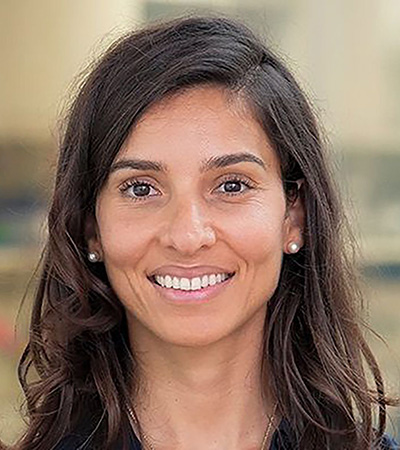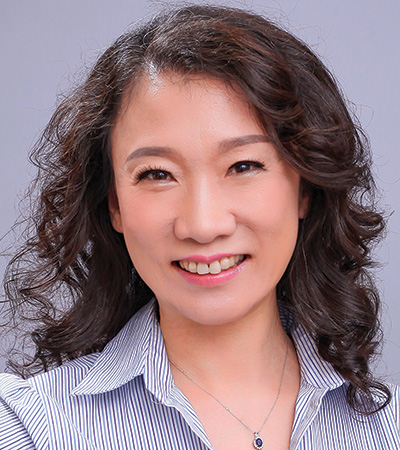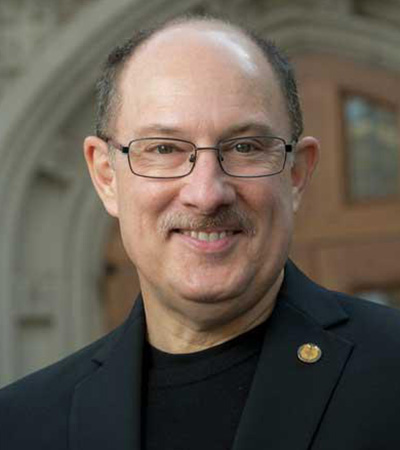Pernas named fellow; Heitman and Wu elected to NAM
Pernas named Packard fellow

The David and Lucile Packard Foundation recently named Lena Pernas a Packard Fellow. The awards are named for David Packard, an electrical engineer and businessman who championed engineering research, and his wife, Lucile Packard, a philanthropist. Pernas will receive $875,000 over five years to pursue her research.
Pernas is an assistant professor of microbiology, immunology and molecular genetics at UCLA. Her research focuses on how organellar function and metabolism are rewired during infection to counteract pathogens such as Toxoplasma. Pernas has received many awards including the Investigator in the Pathogenesis of Infectious Disease Award, the Federation of European Biochemical Societies Anniversary Prize and the BINDER Prize. She was also named a European Molecular Biology Organization Young Investigator in 2022.
“I’m honored to receive this recognition from the David and Lucile Packard Foundation,” Pernas said in a UCLA press release. “This achievement is a reflection of the hard work and dedication of my lab members, without whom this would not have been possible. I’m excited about the research opportunities this support will provide.”
Heitman and Wu elected to NAM


The National Academy of Medicine recently inducted 100 new members, including two American Society for Biochemistry and Molecular Biology members: Joseph Heitman and Hao Wu. NAM members are elected by existing members; the process recognizes individuals who have made major contributions to the advancement of the medical sciences, health care and public health.
Wu is a professor of structural biology, biological chemistry and molecular pharmacology at Harvard Medical School. Her lab uses cryogenic electron microscopy and other biophysical methods to understand molecular complexes involved in innate immunity, including signalosomes and pore-forming complexes like gasdermin D. She is a member of the National Academy of Science and the American Academy of Arts and Sciences as well as a fellow of the Biophysical Society. In addition, Wu is a Pew scholar and received the National Institutes of Health Pioneer Award in 2015 and the ASBMB Bert and Natalie Vallee Award in Biomedical Science in 2024.
Heitman is a professor and chair of molecular genetics and microbiology at the Duke University School of Medicine. His contributions include the discovery of TOR and FKBP12 as targets of the immunosuppressive natural product rapamycin and definition of nutrient sensing pathways in the model yeast Saccharomyces cerevisiae. Subsequent studies led to the discovery of unisexual reproduction and mechanisms of pathogenesis, drug action and drug resistance with the pathogenic fungus Cryptococcus neoformans and other human fungal pathogens. Heitman is an elected member of the American Academy of Arts and Sciences, and the National Academy of Sciences, and has received numerous awards, including the Squibb Award, the ASBMB AMGEN Award, the Korsmeyer Award and the Novitski Prize.
“This class of new members represents the most exceptional researchers and leaders in health and medicine, who have made significant breakthroughs, led the response to major public health challenges and advanced health equity,” NAM President Victor J. Dzau said. “Their expertise will be necessary to supporting NAM’s work to address the pressing health and scientific challenges we face today.”
Enjoy reading ASBMB Today?
Become a member to receive the print edition four times a year and the digital edition monthly.
Learn moreGet the latest from ASBMB Today
Enter your email address, and we’ll send you a weekly email with recent articles, interviews and more.
Latest in People
People highlights or most popular articles

The data that did not fit
Brent Stockwell’s perseverance and work on the small molecule erastin led to the identification of ferroptosis, a regulated form of cell death with implications for cancer, neurodegeneration and infection.

Building a career in nutrition across continents
Driven by past women in science, Kazi Sarjana Safain left Bangladesh and pursued a scientific career in the U.S.

Kiessling wins glycobiology award
She was honored by the Society for Glycobiology for her work on protein–glycan interactions.

2026 ASBMB election results
Meet the new Council members and Nominating Committee member.

Simcox wins SACNAS mentorship award
She was recognized for her sustained excellence in mentorship and was honored at SACNAS’ 2025 National Conference.

From humble beginnings to unlocking lysosomal secrets
Monther Abu–Remaileh will receive the ASBMB’s 2026 Walter A. Shaw Young Investigator Award in Lipid Research at the ASBMB Annual Meeting, March 7-10 in Washington, D.C.
